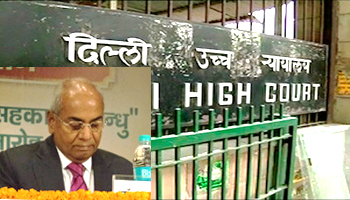
Chandra had engaged the famous lawyer Prashant Bhushan but the honourable court dismissed the arguments and ruled that IFFCO does not fall under RTI Act as it has no government equity and also it is not a ‘public authority’ under Section 2(h) of the Act.
Senior Advocate Arvind Nigam and Rajiv Bansal argued for IFFCO.
A delighted Managing Director of the cooperative behemoth Dr. U S Awasthi tweeted “ I am very Happy dat Hon’ble Delhi High Court has vindicated our case dat #IFFCO always works within d parameter of law without fear&favour.”
The legal wrangle started with the petitioner Subhash Chandra Agrawal filing an application in the year 2011 under the RTI Act and sought various information from it. By a letter, IFFCO rejected the said application stating that it has no government equity and IFFCO is not a ‘public authority’ under Section 2(h) of the Act.
In 2013 the first appeal filed by Subhash Chandra Agarwal against the letter dated 03.02.2011 was also rejected. Thereafter, Subhash Chandra Agarwal filed a second appeal before the CIC and after its rejection too , it filed an appeal in the High Court.
The question before the High Court was to ascertain whether IFFCO is substantially financed and /or controlled by the appropriate government so as to fall within the sweep of Section 2(h) of the Act.
The petitioners relied on the decision of the Court in Krishak Bharti Cooperative Ltd. v. Ramesh Chander Bawa: (2010) 118 DRJ 176 in support of their contention.
After hearing the arguments of the petitioner the Court felt that although, IFFCO was established by the funds provided by the Central Government, the said funds had been returned and the equity has been re-purchased. It was also asserted that IFFCO had paid substantial dividends to the Central Government on the equity subscribed by the Central Government.
A relieved MD tweeted “ #IFFCO is a #Law abiding Institution. This has been vindicated by a recent judgement of Honourable Delhi High Court. Truly a #Cooperative.”





